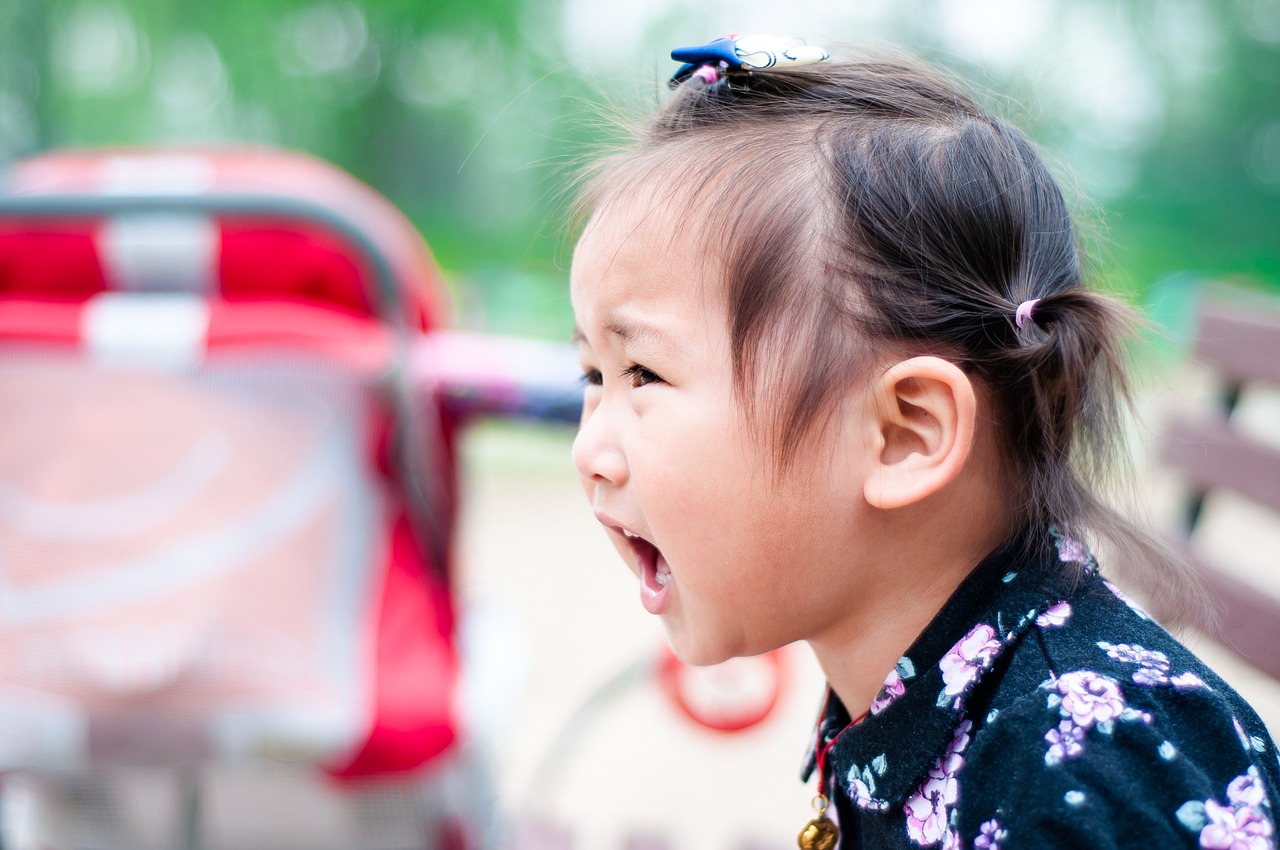When my daughter was about a year old, I once told my mom, “I’m really tired.”My mom would reply, “ Wait til she turns two.” Lo and behold, it came. Terible twos they say. While I would love to call this stage terrific, in my experience, it’s more like a testing stage of her limits and my patience’s. Tantrums. Tantrums. Tantrums.
Yes, toddlerhood is when your kid first feels a taste of independence-– she knows what she wants, does what she wants and doesn’t care what you want. If she doesn’t get what she wants, she throws a tantrum.
Moreover, there would be times when I’d wish there was a rewind button so we could all just get back to the exact moment before the tantrum started so I could do or say something else. Maybe it’s my fault. Other times, I would raise my hands up in exasperation. I give in to her demands and it gets worse. Some people have told me to ignore and well, let’s just say, it’s nearly impossible to tune out the wails and disregard the tears.
As you might imagine, tantrums make parents feel powerless, dread, anger and even panic. “ Ugh, I don’t have time for this!” “Seriously?! Here? Now?” “No, not again!” “I can’t do this anymore!” Sound familiar?
After a lot of reading and reflection, let me share what I’ve learned about this very common issue.
Why Toddlers Have Tantrums
Research explains that toddlers experience tantrums because their prefrontal cortex (PFC) which is in charge emotions and social behavior isn’t fully developed yet. In fact, the PFC only begins to mature at age 4.This means a tantrum is a healthy, normal response to frustrating situations for a toddler. No, it’s not our fault. She’s not a bad child.It’s not gonna last forever.
Steps in Managing A Tantrum Like You Know What You’re Doing
During a Tantrum
Make sure the scene is safe
Where is the tantrum taking place? Is it near the pool or on top of the slide? Place your child in a place where he can safely express himself. You’ll need to carry your crying and screaming child out of this area.
Acknowledge your child’s feelings
When a toddler is having a tantrum, he has these “big feelings” that need release. Empathize and show that you understand where he or she is coming from. “You’re upset because you wanted to play more” “You wanted to be carried but I can’t carry you” “You certainly have strong feelings about..” Being responsive and warm teaches your child empathy as well.
Be calm, present and take charge
Consequently,it is important that we parents remain unruffled in this highly stressful situation. We need to be the calm during their emotional storms, be in control when they’re losing it. Moreover, let’s not throw gasoline into the fire by asking questions or reinforce the behavior by comforting him. Just stay by your child’s side and know that you can handle it like a boss. No yelling. No spanking. No bargaining.
After the tantrum
Reconnect and Reflect
Once the emotional storm has passed, we need to show our child that everything is okay. Perhaps offer a hug or carry her. It is also good to talk about what happened in terms your child can understand. “ You were really mad when…”
Now, I just wanted to share with you two tantrum episodes that happened recently.Each one showing different approaches.
Scenario 1
My daughter doesn’t want people to get her plate. She usually wants to be the one to get her own plate, spoon and fork. But then, a few days ago, she threw a fit when somebody helped her. She cried furiously and inconsolably. I tried to calm her down by carrying her but it got worse. She asked for some tissue to wipe her tears but when I gave her some, she kept crying still. She wanted to be carried to the kitchen, I gave in. It took forever for her to calm down.
Scenario 2
My husband and daughter usually cook rice for breakfast. By this, I mean my daughter pours rice into the rice cooker and turns it on while her dad watches. But that day, she said her father should cook rice by himself since she was busy playing with clay with me. Then, suddenly she had an outburst. She was angry that her father cooked rice. I empathized with her, telling her that I can see she’s upset because her dad was already cooking. Tomorrow they could cook rice together. In less than five minutes, she was back to her happy self. I gave her a hug and we had breakfast together.
I learned my lesson. Tantrums will pass. There’s hope.
Kindly note that these are personal experiences coupled with expert advice. Each child is unique. As always, do what feels right for your child.
How about you? How do you deal with your child’s tantrums?

*featured image credit:pixabay, macmao




I agree with you. It’s not easy to be patient when a kid is having a tantrum. The adult needs to manage his/her own emotions as the kid tries his/her patience. I’m still growing in this area. haha
Terrible two is one of the joys of parenting, and I am serious here. Some may complain and whine, but all it takes is a little understanding knowing that the child is growing well and healthy. They are too young to understand the emotions they feel, and often, they express it in the form of tantrums.
Being the adult, and understanding that it is a part of the growing up process, how can I be mad at all? Instead, just be there. What the child needs is an assurance.
This is so true. Children really need for us to be unruffled even when they are in turmoil. Thank you for the insights.
Although I don’t have children of my own, I do babysit my friends from time-to-time so I found this immensely useful! I’ve also forwarded it onto some of my friends whose children are just starting to become toddlers!
Thank you so much for sharing! 🙂
Thank you so much for sharing Kylie! I also hope it helps them too!
Threading through a tantrum is really very challenging, but I guess one of the fool-proof ways to ward it off is to let the little one get enough sleep and for mum to keep her cool during a meltdown, no matter how difficult it might seem.
Great article! This is very helpful for parents dealing with toddler tantrums.
Thank you so much. I agree we really need to anticipate their needs too.